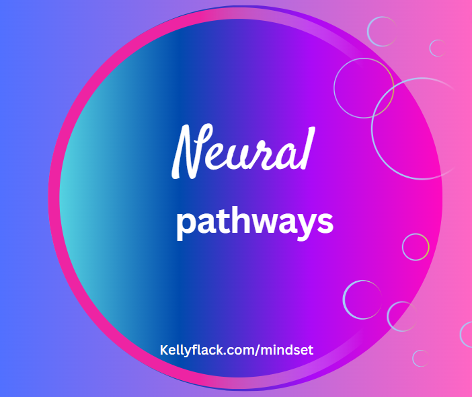
The connection between our thoughts and our neural pathways is a fascinating and powerful one. Our thoughts can shape our brain structure, influencing the way we perceive the world and the actions we take. When we think a certain thought repeatedly, it creates a neural pathway in our brain. This pathway becomes easier and quicker to access over time, making the thought more automatic and ingrained in our minds. This is why repeated positive or negative thoughts can significantly impact our overall well-being and success.
Let's consider an example to illustrate this concept. Imagine you have a belief that you are not good enough or capable of achieving success in your job or career. Every time you have a challenging task or face a setback, this belief gets triggered, and the corresponding neural pathway activates. This can result in a negative thought pattern, such as self-doubt or fear of failure, which can hinder your performance and limit your potential. Your brain becomes wired to think this way, making it difficult to break free from these negative thought patterns.
However, the good news is that we have the power to reprogram our neural pathways by consciously choosing to change our thoughts. By practicing positive affirmations, visualization techniques, and mindfulness, we can create new neural pathways that support our goals and desires. For instance, instead of thinking "I am not good enough," you can replace it with a positive affirmation like "I am capable, confident, and deserving of success." By repeating this new thought regularly, you are creating a new neural pathway that reinforces your self-belief and helps you tap into your full potential. Over time, this positive thought pattern becomes more automatic, leading to improved performance and increased confidence.
Repeat your new thought (your new programming) several times every day so your neural pathways can break away from the old thought patterns and rewire to the new thought. You've got this :)
Changing neural pathways is a process that requires time and intentional effort. Research has shown that it can take anywhere from a few weeks to several months for a new neural pathway to be fully established in the brain. This timeline varies depending on various factors such as the complexity of the pathway, the individual's level of focus and consistency, and the overall health of the brain.
When we think or act in a certain way, our brain creates neural pathways to support that thought or action. These pathways are like well-worn trails in the forest, easy for our brain to follow. However, when we want to change a behavior or develop a new skill, we need to create a new pathway. It's like forging a new trail through the forest. Initially, this new pathway is weak and easily forgotten. But through repetition and practice, it becomes stronger and more automatic.
Imagine learning a new language. At first, it feels awkward and challenging. You have to consciously think about every word and grammar rule. But as you practice speaking and listening to the language every day, the neural pathways in your brain dedicated to that language become stronger and more efficient. Eventually, speaking the language becomes second nature, and you no longer have to think about each word or grammar rule consciously.
See more blogs and courses for mindset
For Mindset on more specific topics, click any link below. Enjoy!
Mindset and Confidence, Anxiety, Personal Power

Mindset and Love, Gratitude, Self-Love, Grief, Depression

These are on their way :)
Mindset and Communication, Angry Words, Self-Expression

Mindset and Intuition, Decision Making, Self-Doubt

Mindset and Awareness, Confusion, Connection to Life
